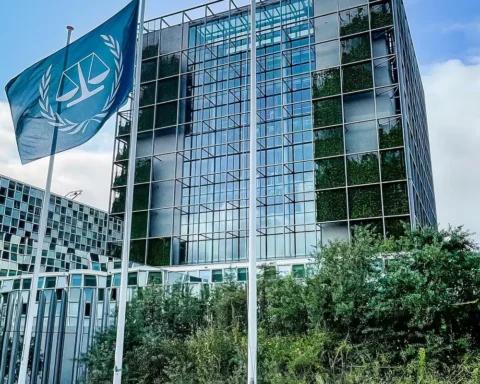The Deputy Minister for Foreign Affairs and East African Cooperation, David Cosato Chumi, has officially received Letters of Introduction from Amin Mawji, the newly appointed Resident Representative of the Aga Khan Development Network (AKDN) in Tanzania.
The credentials were presented on behalf of Foreign Affairs Minister Ambassador Mahmoud Thabit Kombo during a ceremony in Dar es Salaam, marking a renewed commitment between Tanzania and one of the world’s most respected development organisations.
Chumi congratulated Mawji on his appointment and assured him of the government’s full cooperation, noting AKDN’s long-standing contributions to social development in the country.
“We value our partnership with AKDN and welcome continued collaboration in advancing healthcare, education, and sustainable development,” Chumi said.
Mawji, who replaces outgoing representative Amin Kurji, pledged to build on the progress made and strengthen bilateral cooperation between AKDN and Tanzania.
“It is a great honour to serve in this role,” Mawji said. “Tanzania remains a vital partner in AKDN’s regional mission, and we are committed to expanding our impact.”
A Legacy of Partnership
Established in Tanzania in 1991, the Aga Khan Development Network has played a key role in advancing the quality of life through initiatives spanning healthcare, education, rural development, and cultural preservation. The network, founded by His Highness the Aga Khan, operates in more than 30 countries across Asia and Africa, with a mission to serve people regardless of faith, gender, or background.
Also Read; Ahmedabad Air Disaster Claims 265 Lives, Modi Mourns
In Tanzania, AKDN institutions such as Aga Khan Health Services and Aga Khan University have established a strong footprint, particularly in regions such as Zanzibar, Iringa, and Lindi.
New Priorities Ahead
Speaking after the ceremony, Mawji outlined three major areas of focus during his tenure:
- Cancer Care: With rising cases of non-communicable diseases in Tanzania, AKDN will work closely with national hospitals and research institutions to expand cancer prevention and treatment services.
- Climate Change and Environmental Conservation: Mawji emphasized AKDN’s commitment to supporting environmental research in partnership with universities in Canada and Germany. The goal, he said, is to help Tanzania confront the growing threat of climate change.
- Education and Innovation: Collaborations with academic institutions, including Aga Khan University, will be expanded to promote access to quality education and research-driven policy development.
“These initiatives align closely with Tanzania’s Vision 2025 and reflect our belief in long-term, inclusive development,” Mawji said.
A Future Built on Cooperation
Tanzania’s Ministry of Foreign Affairs continues to prioritize development partnerships that support the country’s socio-economic transformation. The government’s engagement with AKDN reflects this commitment, particularly in underserved communities where the network’s interventions are most visible.
Chumi commended the organisation’s inclusive philosophy, noting its contributions in areas often overlooked by traditional aid frameworks.
“This is not just about development—it is about dignity, empowerment, and ensuring that no one is left behind,” he said.
With new leadership in place and a refreshed agenda, both sides expressed confidence that the relationship between Tanzania and AKDN will only grow stronger in the years ahead.







